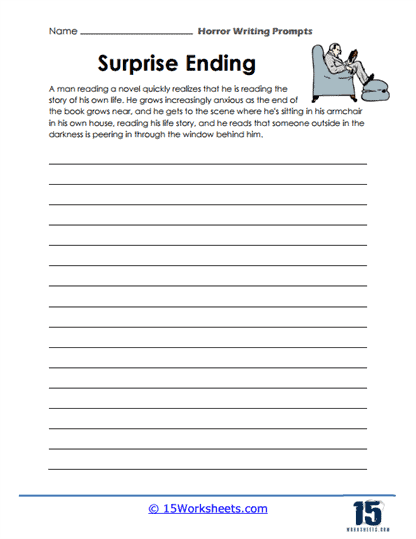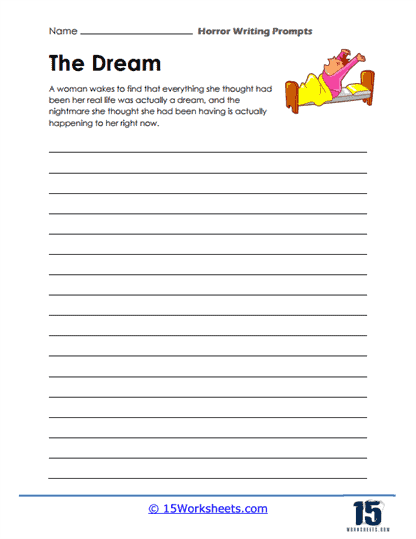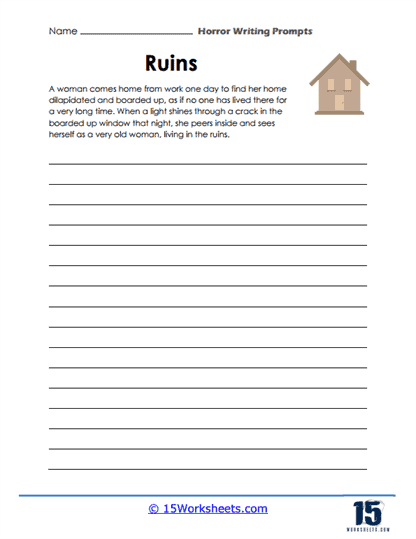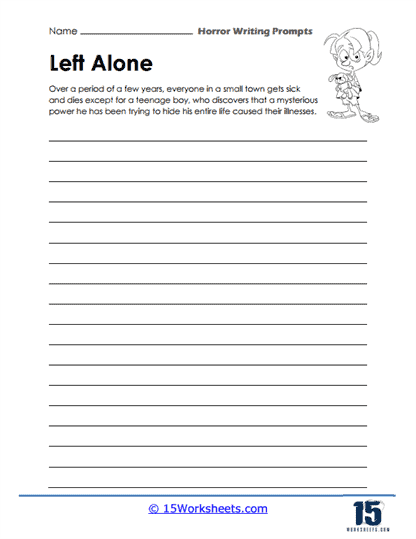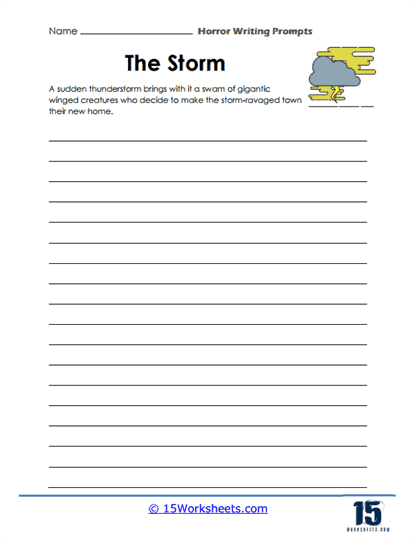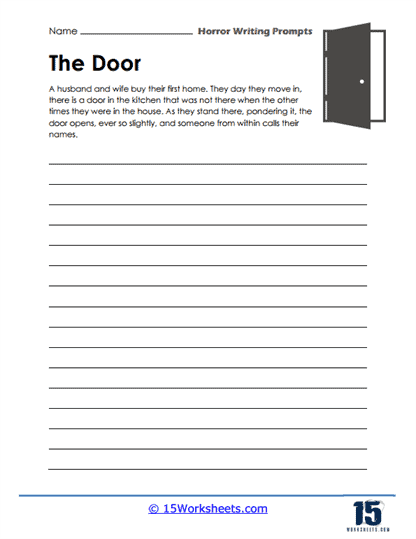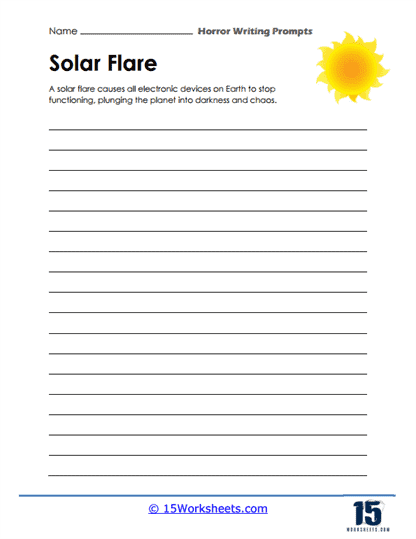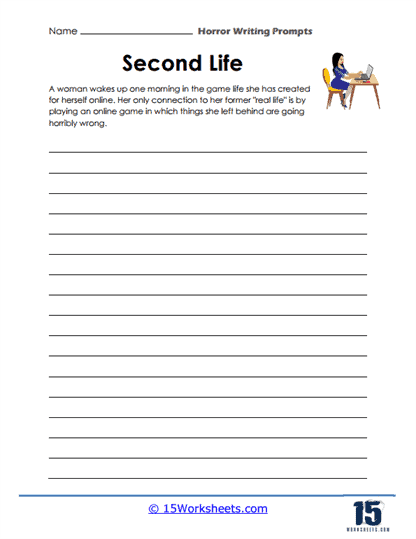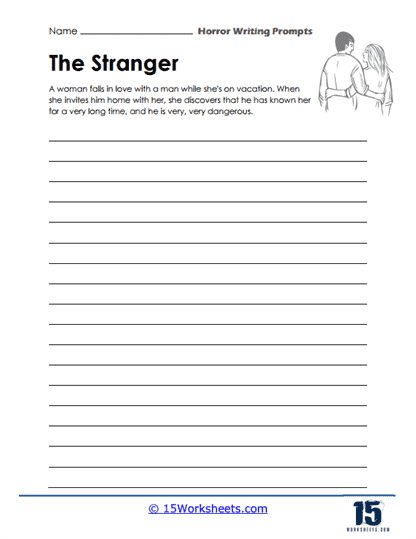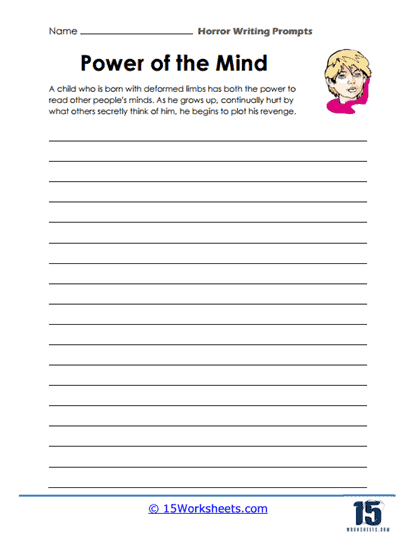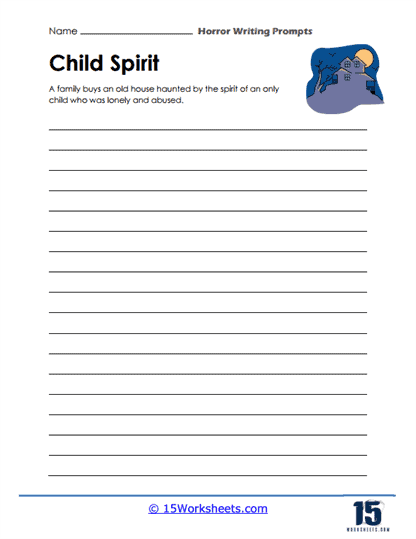Horror Worksheets
All About These 15 Worksheets
Horror writing prompts are creative ideas or starting points that inspire a writer to compose a story within the horror genre. These prompts often contain themes or elements typical of horror stories, like suspense, fear, supernatural elements, or eerie atmospheres.
A horror writing prompt might set a scene, propose a character, outline a premise, or ask a question to kick-start your imagination. They are designed to spark a narrative that elicits feelings of fear, unease, and suspense in the reader.
For example:
“Your main character awakes in the middle of the night to strange noises in their house. They soon realize they’re not alone.”
“Write a story where the character can see and interact with ghosts, but one day, the ghosts suddenly seem terrified of something.”
“Your protagonist finds an old key in their grandmother’s attic. It opens a door in the house that wasn’t there before.”
“A group of friends goes camping in a notorious forest, known for unexplained disappearances. As night falls, things start to go wrong.”
These prompts encourage writers to explore different facets of horror, from psychological fear to supernatural terror. Writing from prompts can be a great way to practice building suspense, crafting chilling narratives, and developing complex characters faced with terrifying situations.
What are the Features of the Horror Genre?
The horror genre, a classic mainstay in both literature and film, is characterized by several defining features. The central aspect of horror is the induction of fear, often through suspenseful narrative techniques designed to evoke a sense of dread. The sudden scare or the slow build-up of a creepy environment can keep audiences in a state of uncertainty and suspense.
Often, horror stories delve into the realm of the supernatural, presenting audiences with entities and phenomena beyond the natural world, such as ghosts, vampires, witches, and even supernatural abilities like telekinesis. Characters in these narratives typically find themselves in situations of isolation, either physical – confined to remote cabins or haunted houses – or psychological, where they are disbelieved or disregarded by others. Horror frequently capitalizes on fear of the unknown or the unexplainable, creating narratives where characters grapple with threats they don’t fully comprehend or phenomena they can’t logically explain.
Finally, the genre is well-known for its distinctive gothic atmosphere. Settings like gloomy mansions or graveyards and ominous weather conditions like fog or rain are often used to foster a sense of unease and impending doom. These elements combined capture the quintessence of the horror genre, although not all horror stories encompass all these features, and some may introduce unique elements of their own.




